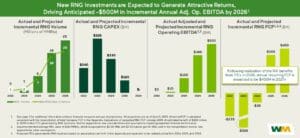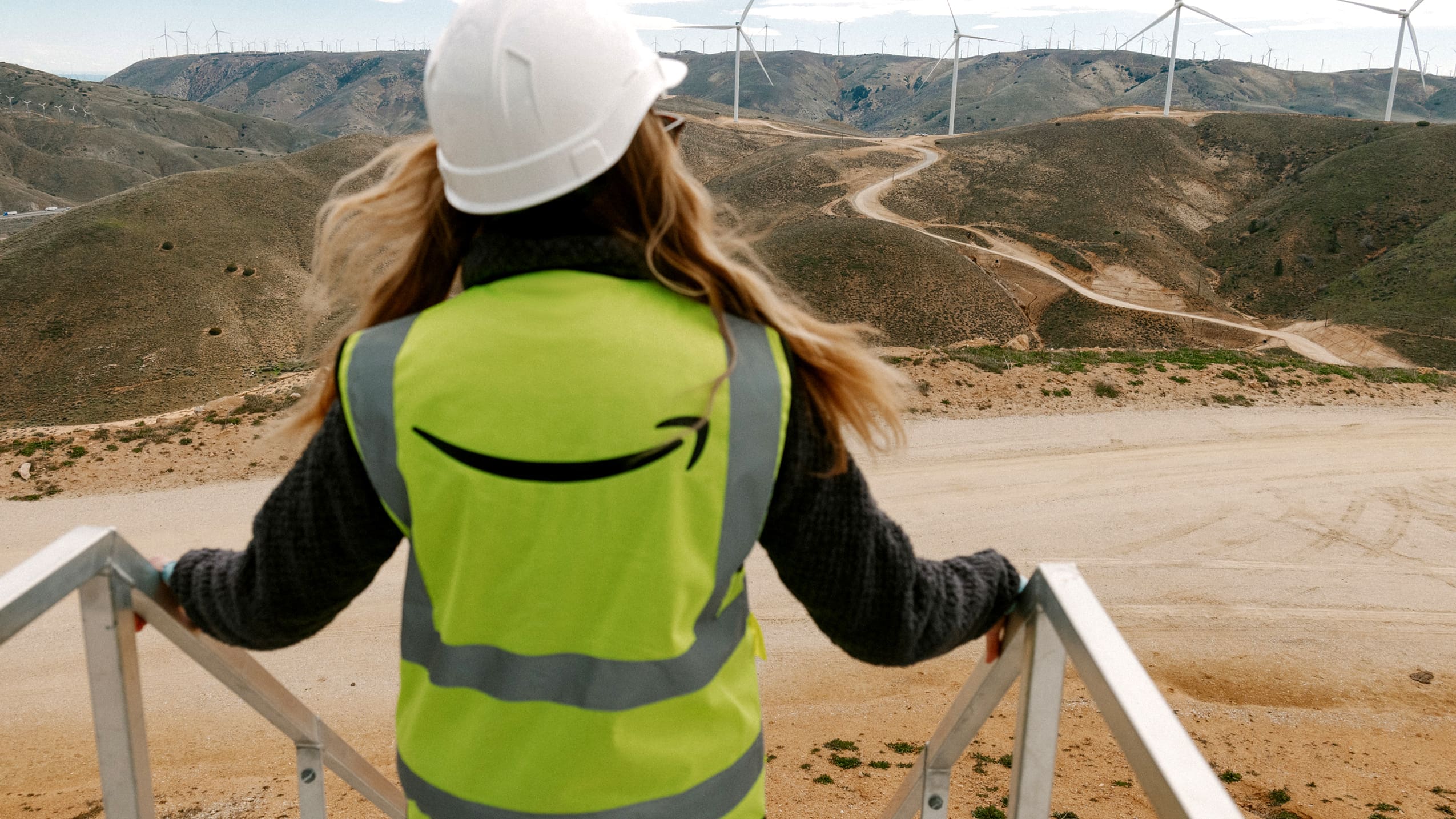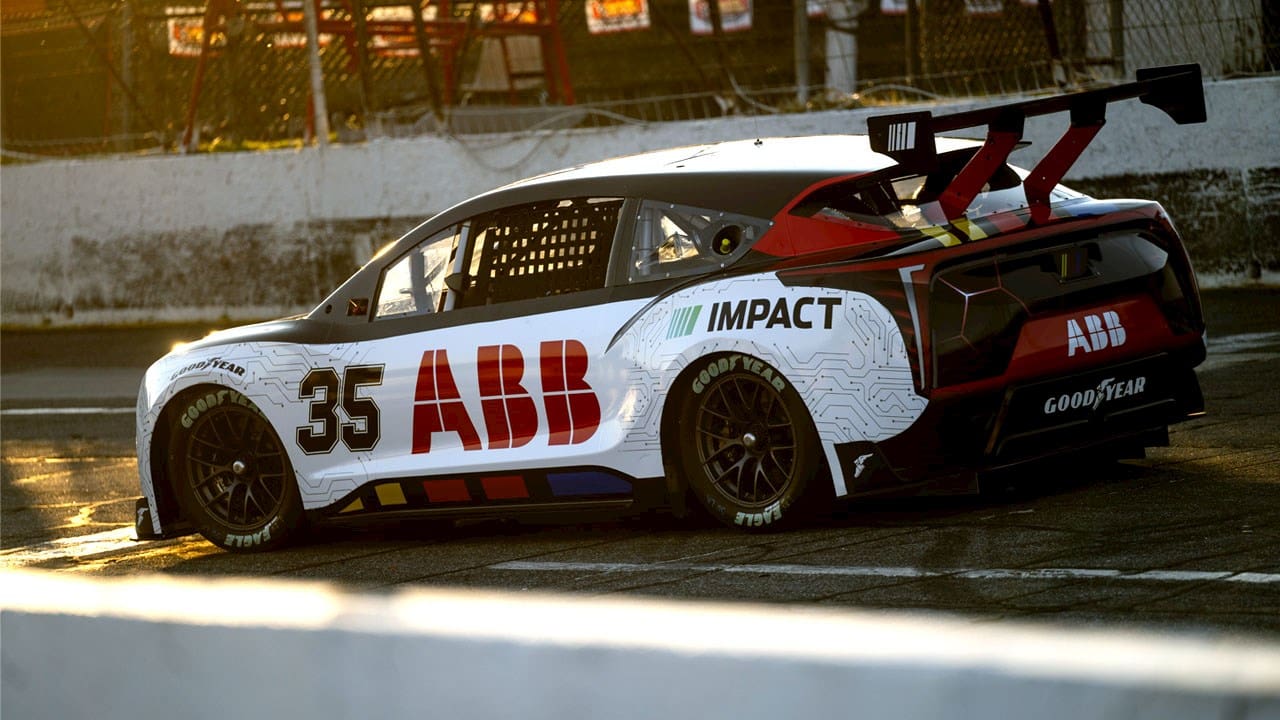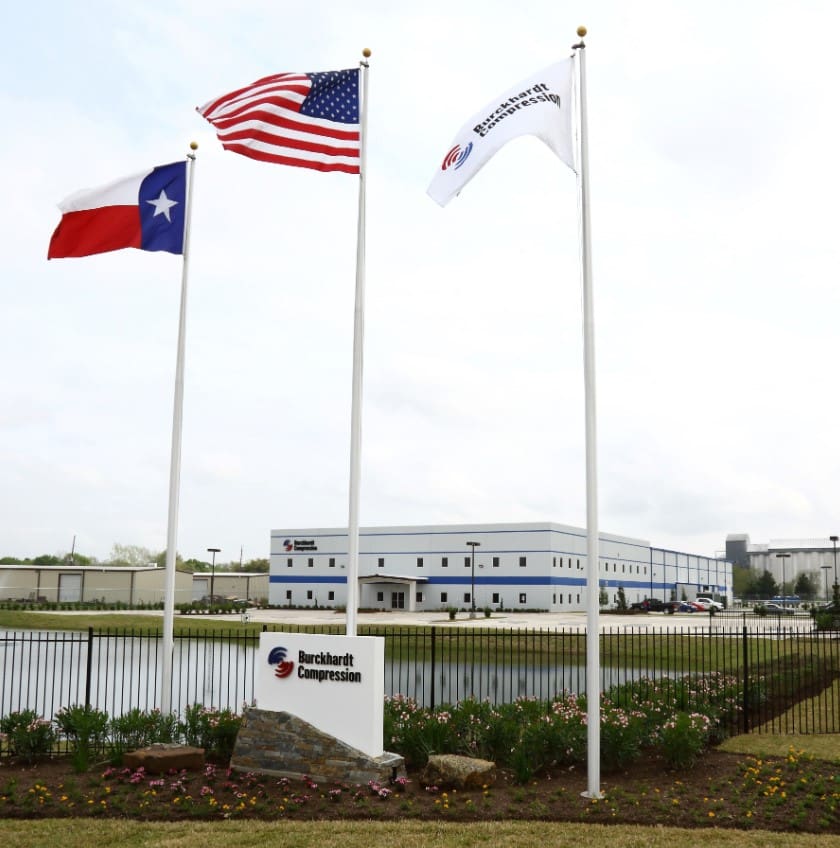WM Inc., formerly known as Waste Management, provides waste collection, recycling, and disposal services throughout the US and Canada. With infrastructure and capabilities in recycling, organics, and renewable energy, WM is North America’s largest waste management company. More than a trash collector, WM has been aggressively investing in renewable natural gas (RNG) and plans to spend approximately $1.215 billion for capital expenditures between 2022 and 2025 to expand its RNG infrastructure with the goal of outfitting its entire natural gas fleet with RNG by 2026. Investments include RNG production plants, landfill gas-to-electricity plants, and other projects that WM estimates will power more than 1 million homes across North America.
The company sees significant upside in building out a portfolio of RNG facilities. During the WM’s 2023 Sustainability Investor Day presentation, executive leadership touted the company’s sustainability activities as a way to produce positive benefits for all stakeholders. “New investments present financial upside with manageable earnings and cash flow sensitivity,” said WM Chief Financial Officer Devina Rankin.
It was revealed during the investor day presentation that WM expects its RNG investments to generate US$450 million in free cash flow in 2026, when expansion plans are scheduled to be complete, and stabilize at or above US$400 million in the following years. Analysts estimate that WM’s planned RNG facility buildout could net the company US$600 million in adjusted operating earnings before interest, taxes, depreciation, and amortization in 2026.
WM has plotted a course for significant scale-up of its RNG business as a growing list of state and federal programs incentivize the production of the methane-derived fuel. WM Vice President of Renewable Energy Shahid Malik sees the RNG market positioned for strong growth within the wider natural gas sector and predicts that RNG demand will outpace supply in the United States. “We see demand rising rapidly over the next few years as a voluntary market starts using a lot more RNG to meet utility demand as gas utilities begin to blend RNG into their networks as one of their tools to meet their own decarbonization goals,” said Malik. “Our 20 new facilities are expected to add 25 million MMBtu of RNG production annually by 2026.”
MW’s renewable energy story doesn’t end with RNG. Malik sees opportunity to “continue to invest in renewable gas, in landfill gas-to-electricity, and related areas where we think we will have a competitive advantage, whether it’s using our 45 million MMBtu of surplus landfill gas to build more gas or electric plants or to monetize the landfill gas by selling it for a third party to then develop.

“North America is really starting to ramp up the procurement of RNG and blending it into the overall utility gas production,” continued Malik. “The requirements for the amount of RNG to be blended by utility really varies by state and by Canadian province. Here in the United States, we’re seeing California as a leader and also New York pushing to increase the amount of RNG as a percentage blended in the utility space. With respect to Europe, European demand, both from companies as well as from utilities, is increasing, and we expect to see more and more offtakes there.”
Analysts valued the RNG market at US$11.68 billion in 2022 and forecast it to reach $104.74 billion by 2032.
“Our renewable energy and recycling businesses and our announced investments in these businesses serve as a great platform for growth through differentiation and optimization,” said Malik. “Connecting the largest collection of landfills in North America with the largest collection of renewable energy facilities fueled by waste with the largest fleet of compressed natural gas vehicles allows us to deliver truly sustainable solutions to our customers while creating unparalleled value.”
“Historically, we’ve been collecting our landfill gas, converting much of it into electricity, which provides an earnings stream for us,” said James Fish, president and CEO of WM. “Fast forward to present day, with landfill gas designated as a renewable resource, we are increasing the value of the gas that’s an inevitable byproduct of most landfills. These RNG plants are simply taking gas that’s naturally produced from the landfill and converting it into a cash-generating machine with a 3-year projected payback and a far better environmental outcome than the status quo. And our returns far surpass those of our competition by virtue of our CNG fleet, which today represents 74% of our routed vehicles. As a result, we’re better positioned to close the loop and capture extremely valuable regulatory RIN credits. At the same time, the recently enacted Inflation Reduction Act will provide tax credits and benefits that served to amplify the value creation of WM’s renewable energy business.”
















